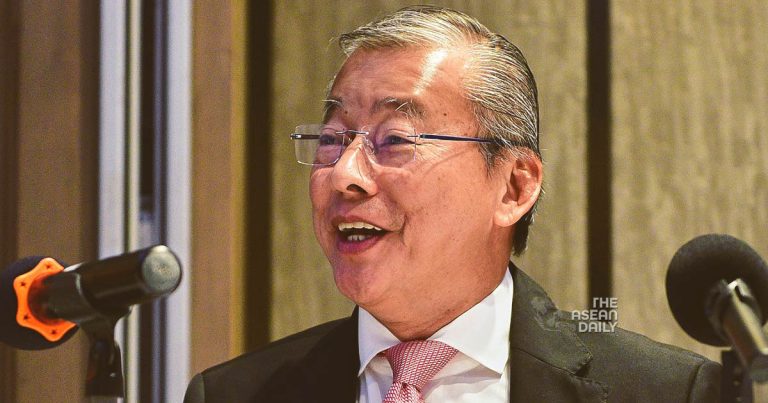19-8-2023 (SINGAPORE) The Presidential Elections Committee (PEC) has rejected businessman George Goh’s application for a presidential candidacy certificate, citing concerns that the five companies he put forward did not constitute a single private sector entity.
In a statement issued on Friday evening, the PEC stated that it had conducted a thorough assessment of Mr. Goh’s application under Article 19(4)(b), the private-sector deliberative track.
“However, after a careful evaluation of the relevant facts and circumstances, including the ownership, management, and operation of these companies, the committee was unable to establish that the five companies formed a unified private sector organization,” the statement explained.
“As a result, due to the reasons provided in the committee’s correspondence to Mr. Goh, we regret to inform that Mr. Goh has not been granted a Certificate of Eligibility under Article 19(4)(b) of the Constitution.”
In response to this decision, Mr. Goh held a press conference at his residence, expressing his dissatisfaction with the PEC’s ruling, which he perceived as unjust. He later released a statement to the media, stating that the PEC had adopted an overly restrictive interpretation of the requirements without clarifying the rationale behind their decision.
The PEC disclosed that it chose to release its rejection letter to Mr. Goh as a response to public allegations made against the committee.
The rejection letter detailed the five companies included in Mr. Goh’s application. He had claimed to hold positions such as group executive chairman of Ossia International, executive deputy chairman of Pertama Holdings, group executive chairman of ITG International, chief executive officer of Crown Essentials, and chief executive officer of Vernal Ventures. Notably, Crown Essentials is registered in the British Virgin Islands.
Additionally, the PEC cited Article 19(4)(b)(ii) of the Constitution, which mandates that the committee assess whether the applicant possesses the experience and ability gained from managing a substantial private sector organization. The PEC clarified that managing multiple smaller private sector entities does not equate to this requirement.
The committee explained that it could only consider an applicant’s role in a single office within a single private sector organization for the purpose of evaluating their experience and ability, as specified in Article 19(4)(a) of the Constitution.
Mr. Goh had argued that the shareholders’ equity of the five companies should be collectively considered for his Article 19(4)(b) application. However, the PEC, after examining the pertinent details and circumstances surrounding these companies, was not convinced that they constituted a single private sector organization.
Furthermore, none of the five companies individually possessed shareholders’ equity exceeding $500 million. The PEC concluded that Mr. Goh’s experience and capability, considering the nature of his roles within each company, as well as the size and complexity of these entities, did not align with the experience and ability expected of someone who has served as the CEO of a typical company with at least $500 million in shareholders’ equity, as required by Article 19(4)(a) of the Constitution.
Consequently, the PEC stated, “The committee was therefore unable to grant you a certificate of eligibility.”
It’s worth noting that, as per the Constitution, the PEC’s decision regarding an individual’s eligibility to run for the presidency is final and is not subject to appeal or review in any court.




